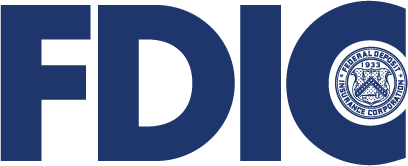Saving for retirement is crucial, but the range of options can leave a lot of us with a lot of questions. “Is a 401(k) enough?” “Should I open an IRA Account?” “Could I do both if I wanted to?” “When should I start saving?”
Some of those have quick and easy answers (start saving as soon as you can, even if it’s just a little; and yes, a 401(k) and IRA can both be part of your plan). Others — like “Should I open an IRA Account?” — can take a little more to unpack effectively.
Since IRA Accounts are an important, consistent part of many retirement savings plans, let’s demystify how they work and why they might fit your needs.
What’s an IRA Account?
IRA stands for Individual Retirement Arrangement (people often shorthand the “A” to “Account”). These are popular retirement-savings options for many people — including independent and gig workers who don’t have access to a company-sponsored 401(k) retirement plan, but W-2 workers hoping to expand and extend their retirement savings, too.
IRA accounts are different from a standard savings account on a few fronts: There’s potential for tax advantages, which can make your savings work harder for you over time; and they’re an investment vehicle, so you can put your savings to work through your IRA by investing in stocks, bonds, index funds or mutual funds.
Different Types of IRA Accounts
The IRS breaks down a half dozen variations on IRA Accounts, but the key types to know: the Traditional IRA and Roth IRA.
They both help you save for retirement, and they both offer potential tax advantages. The key difference lies in how the tax advantages play out.
Traditional IRAs and Taxes
Traditional IRA contributions can be tax-deductible, which means you may be able to reduce your taxable income for the year you make those contributions. When you withdraw funds later, though, you’ll be required to pay taxes.
Roth IRAs and Taxes
Roth IRA contributions are made with after-tax dollars (so no immediate tax deduction). When you retire, the tax advantages come to bear — withdrawals are typically tax-free. If you expect to be in a higher tax bracket during retirement, that can be a big win.
Who’s Eligible to Open an IRA Account
Whether you’re a W-2 employee, a gig worker, freelancer or self-employed solopreneur, you can open and contribute to an IRA Account and save toward retirement. There are just a few factors to consider.
For either IRA Account, you need to have earned income (that can be wages, salaries, tips, or self-employment income).
To contribute to a Roth IRA directly, you’ll need to be under a certain income threshold (the cutoff varies, depending on your IRS filing status). If you exceed the limit, you can still contribute to a Traditional IRA, but your contributions might not be tax-deductible.
Pluses of IRA Accounts
Tax advantages are an important plus when you’re saving for retirement — any opportunity to keep more of the money you’ve earned is a win. But opening an IRA can offer other pluses too:
Putting Time on Your Side
Compound interest is the key. If you start early and consistently contribute to an IRA account, your retirement savings can grow exponentially as your contributions and the interest accrued keep accumulating and growing.
Encouraging Consistency
With an IRA, you have an annual contribution limit that comes with tax advantages. For many people, the annual limit inspires a habit: maxing out the benefits every year. That sets you up for consistent saving and a steady pace toward retirement goals.
Other IRA Aspects to Know
To get the most out of IRA accounts, you’ll want to use them as they were intended: to save, long-term, for retirement.
Withdrawing IRA Account funds before age 59 1/2 may result in penalties and taxes that cut into your savings. And since there are contribution limits, if you’re starting at a later age, an IRA Account may not be enough to get you to your retirement goals alone.
Ask Our Experts
Professional advice is always helpful if you’re not sure what kind of IRA Account to open, or if an IRA Account fits your needs. Our community bankers are a friendly, well-informed resource.
Find the Merchants & Marine Bank location near you and stop by in person, or contact our bankers online. We’d love to help.



